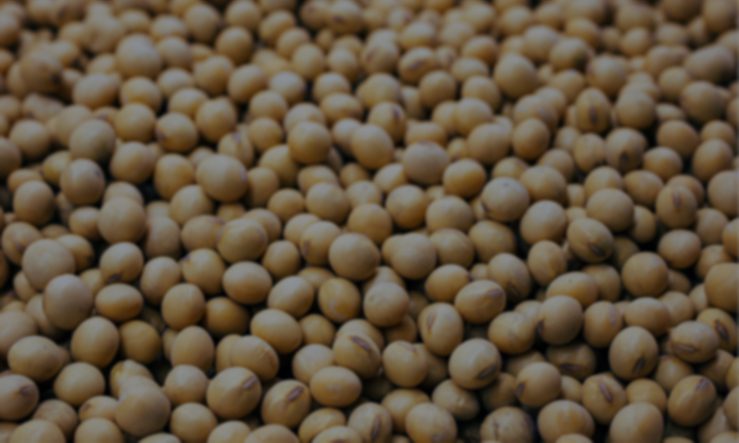Summer Workshop Wrap-Up: What Great Events!
Thanks to the generous sponsorship of the Ohio Soybean Council and Ohio soybean farmers, teachers are heading back into the classroom armed and ready! Armed with great curriculum and supplies, that is, and ready to share terrific learning activities and career information with students. Two GrowNextGen summer workshops made this possible.
GrowNextGen
Food science-related careers are hot in Ohio. In the Experience Food Science: Field to Package workshop, with contributions from Center for Innovative Food Technology (CIFT), teachers gained information about these opportunities, as well as lessons to use with their students.
Elizabeth Murawski, CIFT Business and Workforce Development Manager, spoke about the two recognized food industry credentials CIFT has developed for Ohio’s high school students — Food Industry Associate and Food Industry Specialist. Approved by the Ohio Department of Education’s Business & Industry Panel, the CIFT Food Industry Certifications provide credentials to verify high school student expertise in the areas of agriculture, food and natural resources, bioscience, food science and safety, bioresearch and food marketing and research. Murawski also informed the teachers of the ways CIFT can provide support for these programs and other educational opportunities.
GrowNextGen teacher leaders Rachel Sanders and Jennifer Foudray presented the labs during the workshop. Activities included a sensory tasting of chocolate samples provided by Winan’s Chocolates and Coffees, considering the samples’ appearance, sound, aroma, flavor and texture. Amy Snyder, COO of Winan’s, joined the workshop via Zoom to share about the process followed to bring cacao to a usable product in their production facility.
Ready for food science? Participants prepped their workstations to prepare for making chocolate and learned about a GrowNextGen lesson on cleaning versus sanitizing and bio-based cleaners. Then they made soymilk chocolate bars and came up with a label and brand for their product.
Cold foam is a popular item in food offerings right now, and participants had the opportunity to write their own Standard Operating Procedure, or SOP, for creating one. The key ingredient is soy lecithin, an emulsifier that can convert almost any flavored liquid into a light, airy foam. Then they followed this protocol to produce a cold foam or air product for a cold brew or iced tea beverage.
Other special guests included Halle Redfearn and Rachel Carson from the food science department at Cornell University. Both shared about what they are working on now and how they are part of an outreach committee working to connect with the public to help them understand more about food science.
Ag Biotech Academy
Ag Biotech Academy, sponsored by the Ohio Soybean Council with support from Pioneer, has been a popular summer workshop since it began in 2013. This year the level was ‘stepped up’ to provide more in-depth trainingfor teachers through the Ag Biotech Graduate Academy.
The two days of intensive learning at Otterbein University began with a greeting from OSC’s Tom Fontana. Alexandra Knight, field agronomist with Pioneer, talked to the teachers about the history of agriculture research and how biotech is helping face the challenge of feeding a growing population. Despite having less arable land, farmers are increasing yield due to new traits in seeds. “Biotechnology is a toolbox to make things easier in developing new varieties through predictive plant breeding,” Knight said.
The workshop participants were able to complete a variety of activities to help them understand more about biotechnology’s connection to agriculture.
Presenter Zack Bateson of the National Agricultural Genotyping Center began with a DNA extraction lesson. While this activity is a familiar one in high school classrooms, the twist of developing their own protocol got the teachers excited about using this with students. Next, Bateson presented a musical polymerase chain reaction (PCR) lesson developed by HudsonAlpha. The PCR technique is used to detect bacteria or viruses in disease diagnosis and to assist scientists in the development of GMOs, among other applications.
Bateson also presented lessons on phylogeny using bioinformatics and using the NCBI database to identify viruses through DNA sequences.
Co-presenter Jamie Allison teaches biotech at Loveland High School. Allison is a Bio-Rad Explorer Fellow and shared two Bio-Rad activities. The first, Out of the Blue, introduces the CRISPR-Cas9 gene editing technology. Participants learned how to edit DNA, turning it from blue to white. This shows how beneficial genes can be added to crops or used to cure diseases. Got Protein?, the second activity, was a protein analysis using a Bradford assay. The participants tested almond, oat, and soy milk; soy protein powder; and dry milk powder.
Jerron Schmoll, Product Lifecycle Manager at Corteva Agriscience, spoke at the industry dinner about the mechanics of CRISPR and how it is being used at Corteva in agriculture. The workshop wrapped up with a field trip to Waterman Farm to learn about the research done there. Participants received their choice of the Bio-Rad kits as well as other classroom supplies worth $200.
GrowNextGen workshops are rated consistently high in participant evaluations, providing hands-on experience with the curriculum as well as supplies to implement the activities in the classroom. Teachers also appreciate the opportunity to collaborate with other educators and to talk with industry experts. All this is made available at no cost to them, thanks to the generosity of OSC and the check-off program.
This valuable professional development is even more critical and appreciated by teachers due to challenges they’ve had to overcome related to the COVID pandemic.
Coming in September, more workshops! The popular ChickQuest workshop will train elementary teachers on STEM lessons related to life cycles and chickens. Also, a new water quality workshop, presented in partnership with Ohio Corn & Wheat, will allow educators to do biotic testing at Lake Erie and learn about how farmers are working to protect the environment through sustainable practices.
Visit grownextgen.org to learn more!


